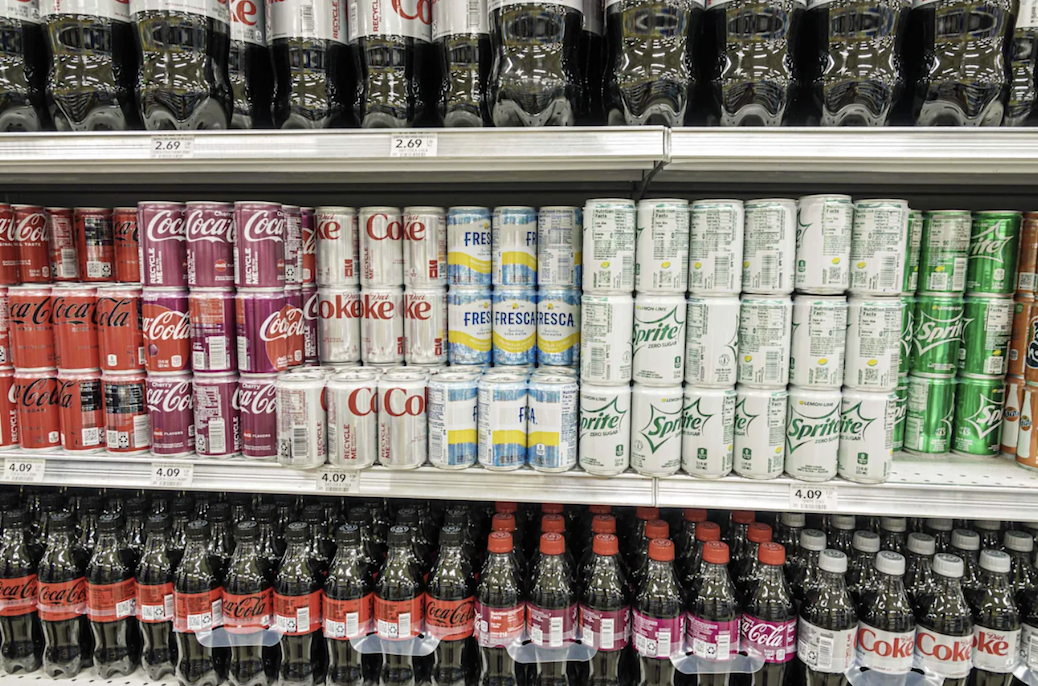
The Food and Drug Administration (FDA) has issued an urgent recall involving several popular soft drinks after reports of possible metal contamination surfaced.
The recall affects limited batches of three well-known beverages produced by Coca-Cola’s regional bottler, raising safety concerns for thousands of consumers.
What’s Behind the Recall?
On October 3, 2025, Coca-Cola Southwest Beverages, LLC, based in Texas, initiated a recall after discovering that certain cans of Coca-Cola, Coca-Cola Zero Sugar, and Sprite might contain metal fragments.
The FDA officially classified this as a Class II recall on October 20, which means that while the risk isn’t likely to be life-threatening, consuming these sodas could cause temporary or medically reversible health issues. Think: mouth injuries, digestive discomfort, or worse if a sharp fragment is swallowed.
Which Products Are Affected?
Before you panic and toss every can in sight, know that this recall is limited to specific products sold only in Texas. Over 4,000 units are affected, and the recall is limited to certain batch codes and packaging sizes. Here’s what to look for:
Recalled Coca-Cola Products - Check These Codes
12-pack Coca-Cola Zero Sugar: Code 49000042559 / FEB0226MAA3
35-pack Coca-Cola Zero Sugar: Code 49000058499 / FEB0226MAA2
24-pack Coca-Cola: Code 49000012781 / JUN2926MAA3
35-pack Coca-Cola: Code 49000058468 / JUN2926MAA
12-pack Sprite: Code 49000028928 / JUN2926MAA or JUN3026MAB
35-pack Sprite: Code 49000058482 / JUN2926MAA
If you spot any of these codes on your soda packs, it’s time to take action.
Why Is Metal in Soda Such a Big Deal?
It might sound like something out of a sci-fi movie, but metal fragments can end up in food and drink products due to equipment malfunctions or manufacturing errors. Even tiny pieces can cause real harm—think cuts in your mouth, throat, or digestive tract, or even more serious complications if swallowed. For older adults, who may already have sensitive digestive systems or underlying health conditions, the risks are even more concerning.
Also read: Another egg recall raises safety concerns—what to know before your next breakfast
What Should You Do If You Have a Recalled Can?
First and foremost: Do not drink it. Even if the can looks perfectly normal, the risk isn’t worth it. Here’s what you should do:
- 1. Dispose of the Product: Safely throw away any affected cans. Don’t pour the soda down the drain and recycle the can—just get rid of the whole thing.
- 2. Return for a Refund: Most retailers will offer a full refund if you bring back the recalled product. Check with the store where you purchased it for their specific process.
- 3. Spread the Word: If you have friends, family, or neighbors in Texas who might have these sodas, let them know about the recall. A quick phone call could prevent a nasty surprise.
What About Other Coca-Cola Products?
Good news: At this time, no other Coca-Cola products are affected by this recall. If you’re sipping on a different flavor or a bottle instead of a can, you’re in the clear. But it’s always smart to check the FDA’s recall database or Coca-Cola’s website for the latest updates.
Staying Informed About Recalls
Given the increase in food recalls, it's smart to stay informed about product safety alerts. The FDA maintains a current list of recalls on its website at FDA.gov, and you can sign up for email alerts for specific product categories. Many grocery stores also post recall notices near customer service counters.
Consider checking recall databases monthly—make it part of your routine when you're doing other household management tasks. It's also worth keeping product packaging until you've consumed items, especially for products with longer shelf lives.
Read next:
- A listeria recall could involve a breakfast favorite—here’s what to know
- Time to clean out that spice cabinet: FDA expands dangerous cinnamon recall to 16 brands
- Are these 5 popular condiments hiding expired dangers in your fridge? What you need to check before your next meal
Have you ever had to return a product because of a recall? Did you get a refund, or was it more hassle than it was worth? Maybe you have tips for keeping your kitchen safe and organized during these situations.






